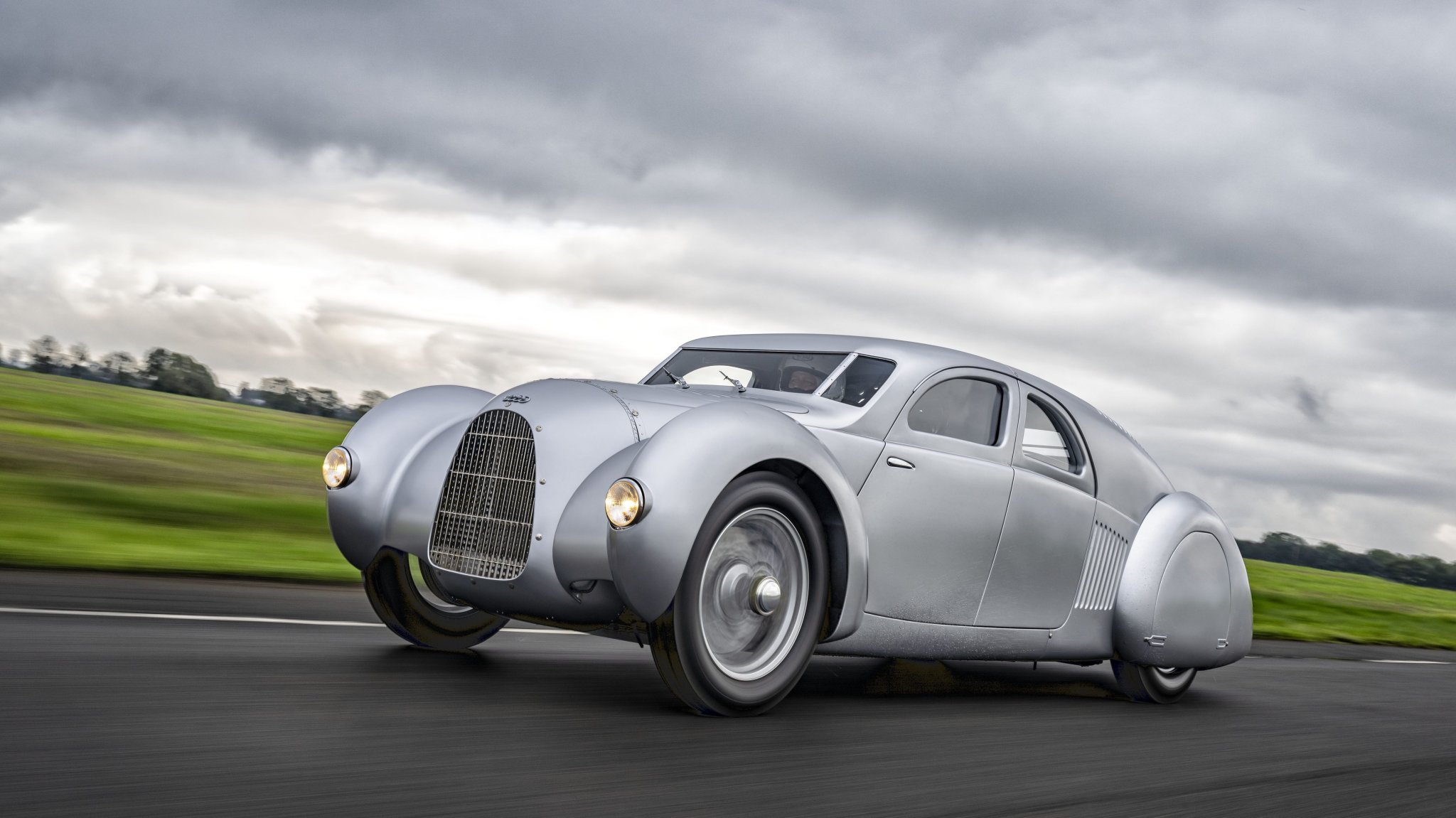

Audi is running the new RS E-Tron GT Performance at the 2024 Goodwood Festival of Speed, calling its latest EV the “most intense car” it has ever built. Even though Audi is strapping its future to the roof of the fastest E-tron yet—capable of going 0-60 mph in 2.5 seconds—the German automaker also decided to tend to unfinished business at the event this year. And there’s no better way to do that than by debuting the Auto Union Type 52: a 16-cylinder sports sedan co-engineered with Ferdinand Porsche, which has been in the making for over 90 years.
The Type 52 dates back to the founding era of Auto Union AG, a conglomerate formed in 1932 that brought together the German automakers Audi, DKW, Horch, and Wanderer. These were represented by the four rings that Audi models would later come to wear as their logo. In 1933, Auto Union asked Ferdinand Porsche to draw up plans for a race car based on a new formula for Grand Prix races starting in 1934. Auto Union’s race efforts were notably part of a motorsport program funded by the government of the newly-appointed Chancellor of Germany, Adolf Hitler.


According to the new Grand Prix rules, the race car could weigh no more than 750 kilos (1,653 pounds) and Porsche’s design studio came up with the rear-mid engine Auto Union Type A, or Porsche Type 22. The supercharged V16 race cars went on to a highly-successful run in GP seasons beginning in ’34, and lasting until the beginning of WWII in 1939. Together with Mercedes-Benz’s race cars, the Auto Union cars were nicknamed the “Silver Arrows.”
What most people didn’t know, was that while Auto Union and Porsche were developing the Type A, they were also planning to make a street-legal sports sedan based on the race cars. The original 1933 drawings call this model the “Schnellsportwagen,” which means “fast sports car” in German. A test car was planned, but by 1935, nothing new had come of it and the project was abandoned. That is, until now.


Audi asked restoration experts Crosthwaite & Gardner to build the Auto Union Type 52 by piecing together archival documents and the old design sketches. The British firm have helped Audi maintain its collection of Silver Arrows alive. So, who better to bring the car to life, seeing as it borrows heavily from the original Type 22 drivetrain.
Given the long wait, there are notable differences between the Type 52 design from 1934 and the model that finally made it to production nine decades later in 2023: for starters, the supercharged V16 engine went from a 4.4 to 6.0-liter displacement, which is like later Auto Union Type C machines. Output subsequently jumped from 197 to 512 horsepower. Being a street-legal version of a race car, the Type 52 was never going to be as light as the Type 22, with Porsche aiming for an unladen weight of 1,300 kilos (2,866 pounds.) The 2023 model comes in at 1,450 kilograms (3,197 pounds) and is over 17.6 feet long with a 10.9-foot wheelbase.
It’s still silver, though, just like the Type 22s in whose image the Type 52 was made. The sedan was obviously made with aerodynamics and performance in mind, but the Type 52 is more of a grand tourer now. The driver still gets to sit in the center, as in a real race car, but there’s room for two rear passengers off to the side. There’s also space for luggage and two spare tires. Motorsport legend Tom Kristensen will be piloting the old new car at the Goodwood Hillclimb. The nine-time Le Mans winner and former Audi driver calls the Type 52, “the most powerful car we never built.”



Got tips? Send ’em to tips@thedrive.com